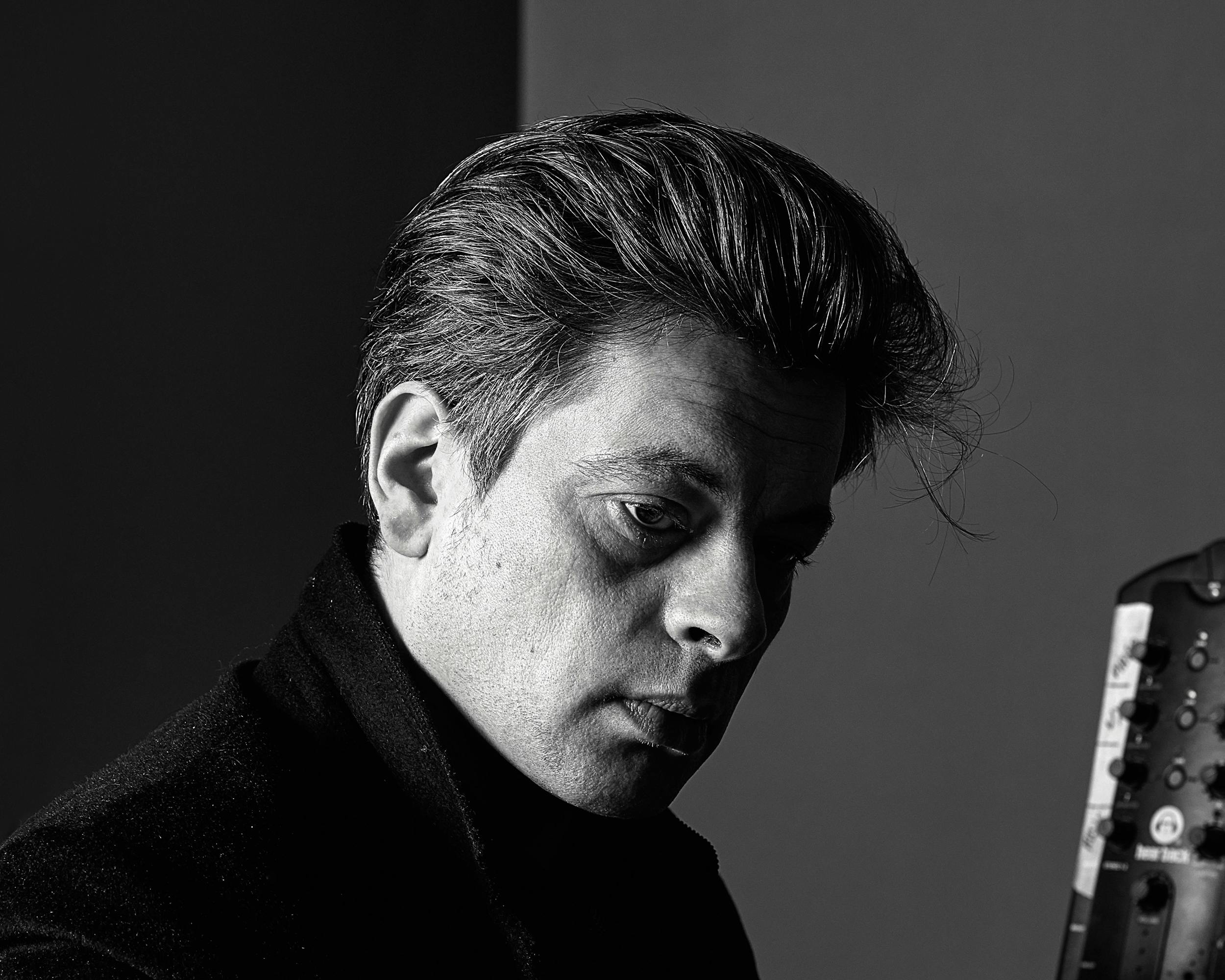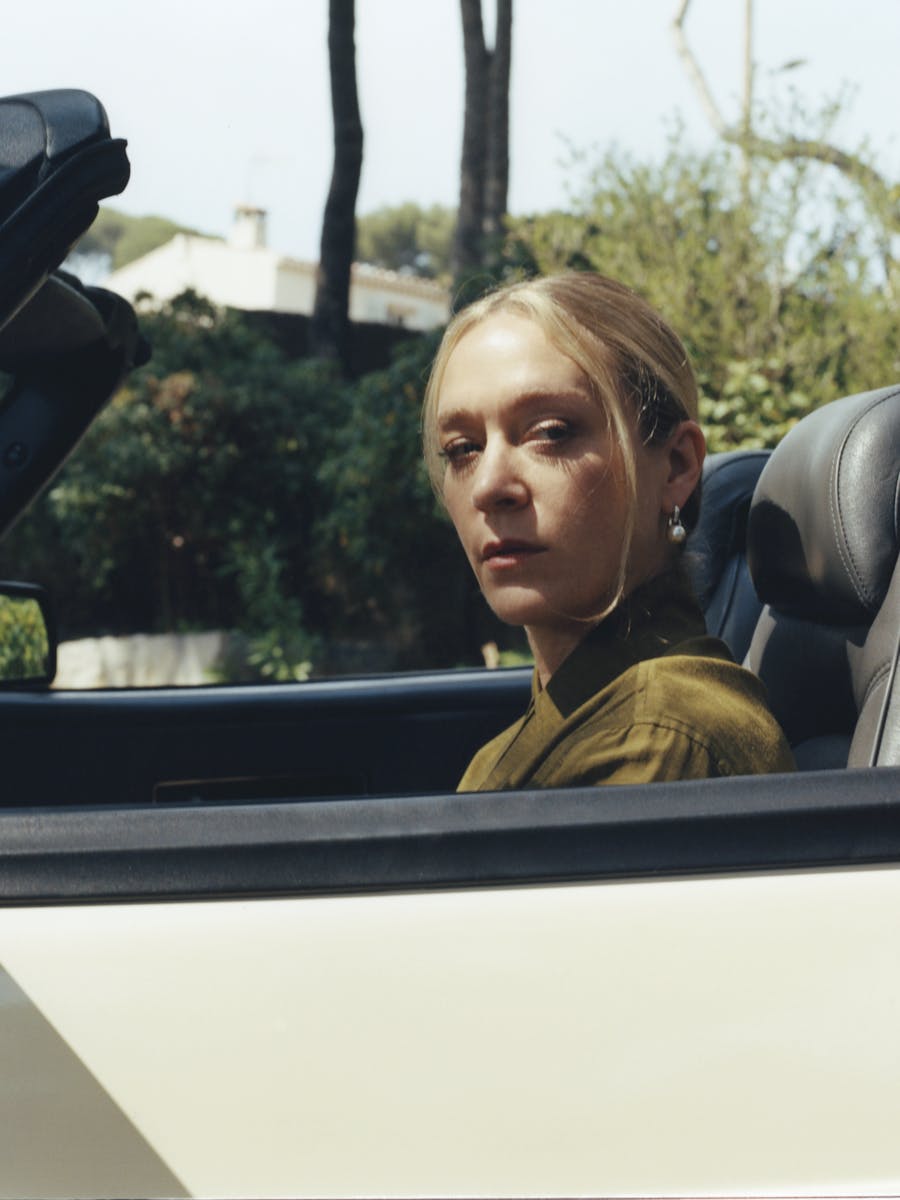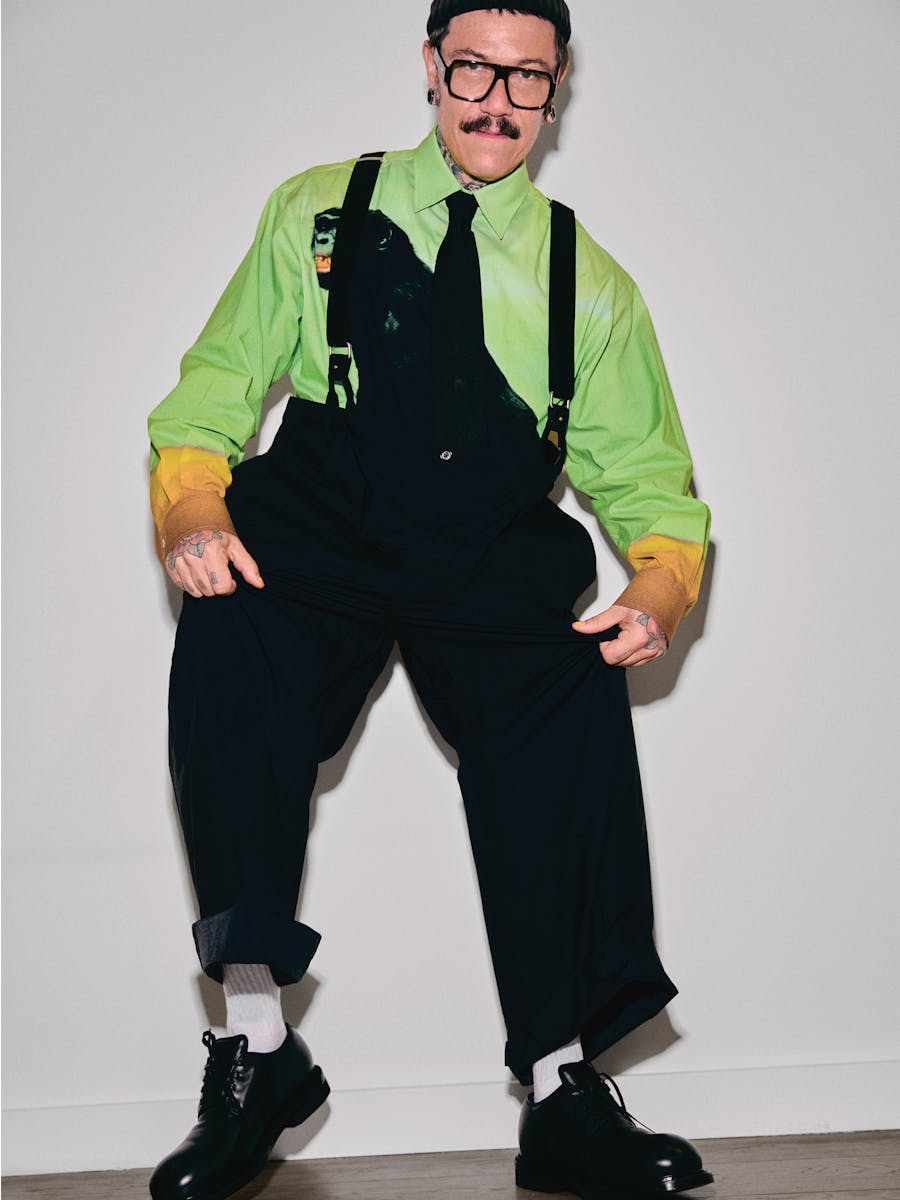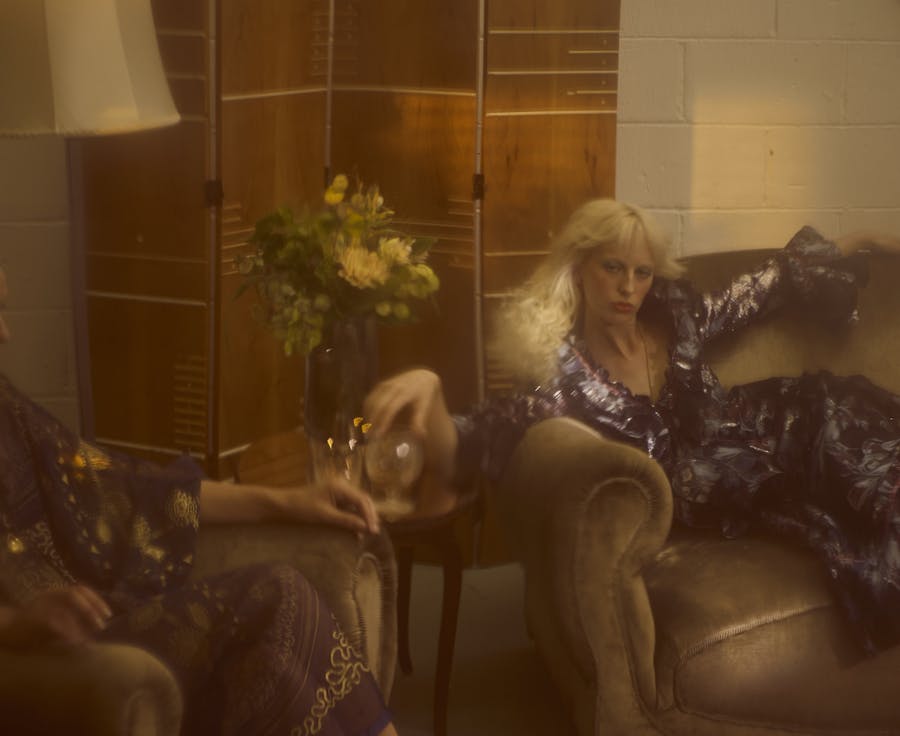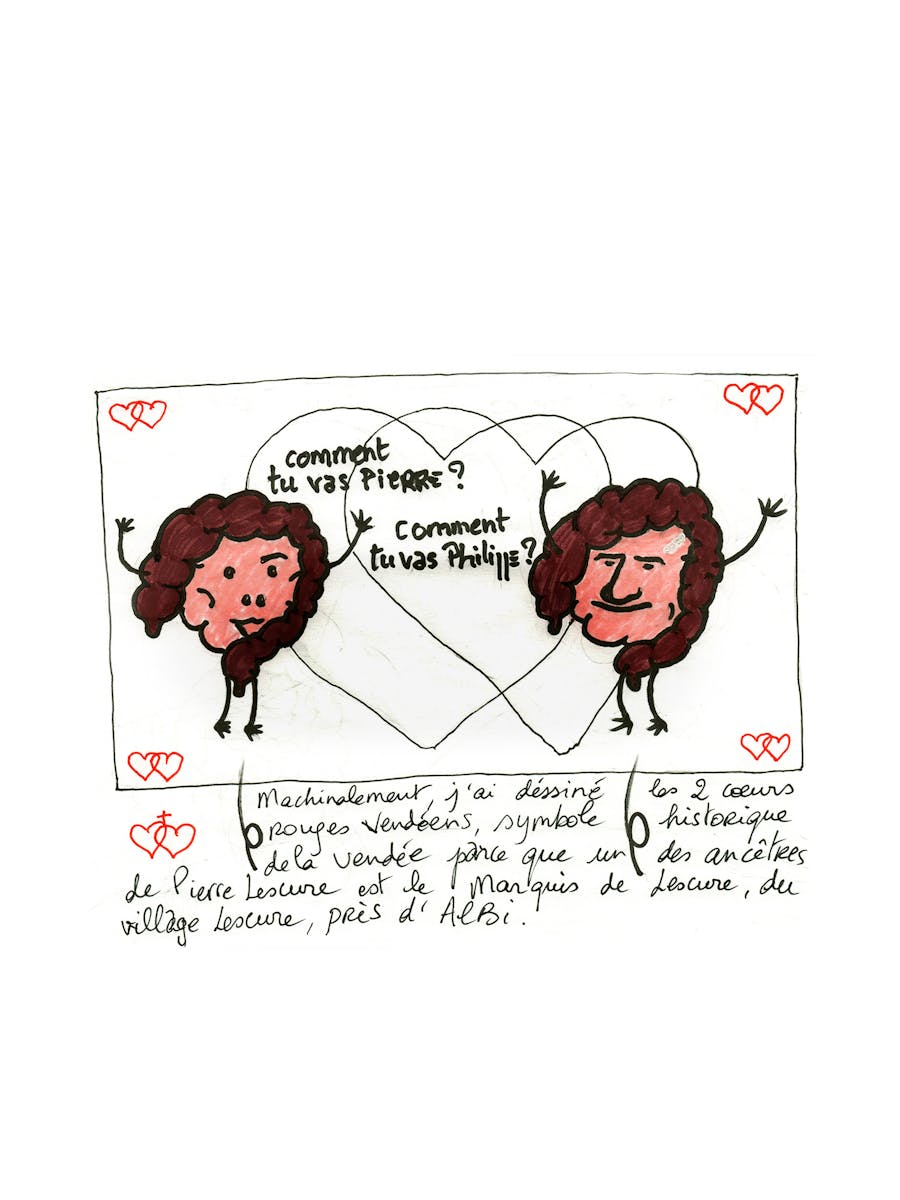Boris Ovini
Boris Ovini
With Benjamin Biolay, the plan was to talk about music. And lyrics. We couldn’t wait. And music and lyrics would inevitably lead us to discuss the aesthetic of his CDs, his records, images, cinema, France, Argentina, the world. With Benjamin Biolay, we know – and we keep on discovering - that his ceaseless and multiplex creative work is a gift – a labour that is both obsessive and joyful. His is a talent that has been unfolding for 15 years, that is generous, and increasingly loves to share itself with others at concerts. We couldn’t wait to listen to and converse with this man, who, despite having lived through a few intense years, still retains the lanky figure and face of his youth, not to mention the hairstyle. We can’t wait because we want to hear and to learn, because Biolay is precise and cultivated, curious and garrulous. ‘We’ means the usual Exhibition interview suspects: Edwin, Boris and myself, a little like in the old Marie Laforêt song.
We have just arrived, early on a January afternoon, in the lovely Studios de la Seine, in the 12th arrondissement of Paris, where people live well. It’s all wood and consoles, as wide as a football pitch. The night before, Biolay had finished up late in the studio. In the early hours, with heavy eyelids and a happy expression, he knew that the second volume of his South-American work was complete. Benjamin sits down, we start talking (don’t worry… we’re getting to the answers) and, from time to time, couldn’t help but get up and take us to the studio where his team were listening again to the gorgeous tracks from this second volume of Palermo Hollywood, due out in May.
“I got back from Argentina a few days ago…I just wanted to enjoy a bit of summer there and get together with the musicians with whom we worked. We did the 2 albums with Denis Bennarosh, Nicolas Fiszman and some other Argentinians whom I’ve known for a long time.”
Are those the benefits of the universality of music today… that everyone knows each other all around the world? “Universal yes, but music is also relentless. You have to be able to play almost everything well enough and to know the other musicians well. I played some of my French colleagues’ work to my Argentinian friends. There wasn’t much in the way of a reaction…except for Christine and the Queens! And, you know what, they hadn’t even seen her dance…her whole thing is so new, her grace. Even my friends who make Argentinian hip hop and punk tango fell in love with it.” So having conquered the Anglosphere, maybe she should start working on the Hispanic world?
Benjamin smiles: “The bridge between me and Argentina is that we’re all Latin. And I really understood that when I was invited to play at Club Niceto – the musical temple of Buenos Aires where, to my surprise, I sold out. As they say over there, Mexicans came from the Aztecs, Peruvians came from the Incas and Argentinians came from boats. The indigenous culture isn’t very present.” Musically but also lyrically - “Argentina, for me, is also its Ches and its Borgeses.”
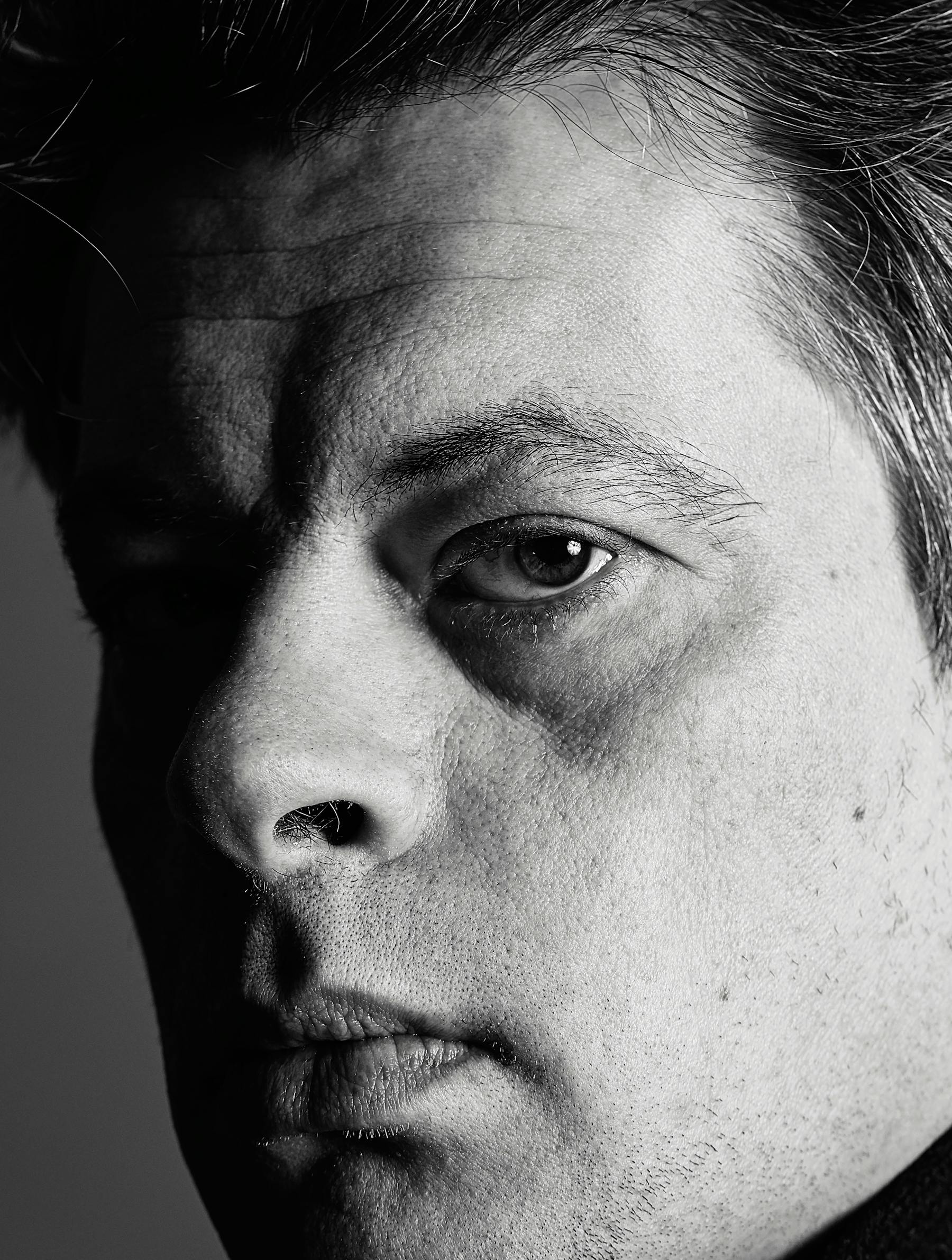
Where does it come from then, the power in his writing, the precision of his words, the poetry, when he writes and when he speaks? “I read. A lot. Novels, letter, biographies.” And of course he mentions his friend, Hubert Mounier, the singer-songwriter of l’Affaire Louis’ Trio, a big brother figure who passed away too soon, last year. “He had this extraordinary aesthetic, the 1950s bubble he created. Very individual. And also thanks to him, I became obsessed with finding the right word, the simplest line possible, digging and filing a deep lexical reservoir. You have to know a lot to keep it simple.” And what about their shared passion for the Beatles? “We used to tease each other,” Benjamin smiles. “Hubert was McCartney. I used to call him a hairdresser’s assistant to annoy him, but for Lennon my respect is immense and sincere. His solo albums are extraordinarily powerful. They penetrate to the core. There’s a psychoanalytical abyss in that primal scream in Mother, the purity of Spector’s piano in Love. You know, In My life is the only song Lennon and McCartney wrote together.”
And Benjamin gives us a tip: “You’ve got to listen to the Johnny Cash version, produced by Rick Rubin.” Rubin, the quintessential producer. “A producer needs to be first and foremost a psychiatrist, then a musician, even if he doesn’t know how to play – that’s what makes a great producer.” He doesn’t add that we’re sorely lacking producers of this stature in France.
Sometimes, Benjamin says, “You’ve got to use reverse psychology; the most famous example being Françoise Hardy, who always says no. When you like what she suggests, at first you’ve got to pretend to be skeptical…You have to challenge her, inveigle her into accepting a compliment, so that she relents.” Françoise Hardy spotted Biolay when his first album “Rose Kennedy” was released. “I was so honored. And yes, it was it 15 years ago! She came to the Bataclan, she talked to me about the whole album, the chords, the narrative, and even said there was a hint of Trenet in ‘Un été sur la côte.’ “
For my part, I heartily recommend that you listen or listen again to Rose Kennedy. Biolay, the master arranger, is already in evidence as a creative force, as is Biolay the composer, lyricist, story teller, the artist with a sense of the tragic. Linger over “La dernière heure du dernier jour.” Benjamin knows everything about the Kennedys, of whom he evokes clear images.“The whole family was crazy. Imagine John in the late 40s, a playboy on the beach. His dad’s just told him that his brother has got himself killed in the Pacific and so he says, “You’ll just have to be President one day.” But they end up dying, one after the other. Even Bobby, alas, the greatest of them, the one with the most depth.” As the lyrics of the title track have it, « Les nuits sont longues pour Rose Kennedy » [the nights are long for Rose Kennedy]
To be perfectly honest, I am chomping at the bit – I’m not going to have anywhere near enough time here to take you through all the classic songs Biolay has written over the past 15 years (« Ton héritage », « À l’origine », « La superbe »…). And you, you lucky people, you’ve got another 30 years with him... So I cut to the chase – Where does Mozart fit in to all this? I know that Biolay reveres him: “Since he was cremated, nobody can do a DNA analysis. Otherwise people would have tried to understand how he managed to do so much in such a short time, laying the foundations for the next hundred years of music. All his compositions are still played today. He even invented touring and when he died he was getting ready for his comeback, with Handel on the bill.”
Benjamin has an incomparably lively musical culture…we could listen to him talk for hours about the stunning simplicity of Nat King Cole, the tragedy of Chet Baker, “who was conscious of his own decline. He was the best trumpeter, the best vocalist, two equally great talents in one individual – it’s unparalleled.” Benjamin mentions the great film composers: Bernard Herrmann, John Williams, Badalamenti, Rota, Kubrick’s genius for his soundtracks, Wong Kar Wai’s … but in France Biolay prefers to act. “Too often directors are scared that you’ll tell the story better than them with your music. La Fémis needs to work on that…”
And…two bonuses – I get Benjamin talking about one “seriously underestimated” voice, that of Marilyn Monroe. “A sun. A white Ella - in fact she asked her for help once, on how to improve her singing. We need to rediscover Marilyn the vocalist.” And, if you need a singer-dancer from the 60s, one who is the epitome of glamour and charm, I blush to hear Benjamin, at his age, mention the idol of my youth, the divine Ann-Margret. Seek her out on the Internet or elsewhere. Let us know what you think.
Ambrosia, the magnificent front woman of Shivaree, with whom he’s working on a project, has just arrived. Benjamin plays us three more new tracks. I don’t think that anyone in France has ever written such rich, such vivid scores, so full of images and emotions. But, Benjamin says, it won’t be long before he goes back to his old idea of writing an entirely instrumental album.
We’ll wait. There’s so much more to come from Benjamin Biolay.
